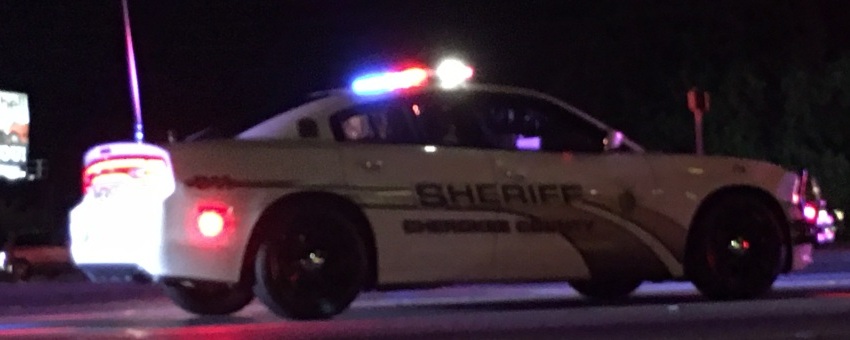Can the Police Pull Me Over For No Reason

This article presents information on authority of police to make a traffic stop that, to a driver, might seem to be unreasonable or without cause.
The Traffic Stop Dilemma
For most people, being pulled over by the police is going to happen sometimes. How well a traffic stop goes depends on a lot of factors. Whether you think the traffic stop was or was not justified, you should always be calm and polite . . . and so should the officer.
When things go wrong, and you need to hire an attorney, the facts of your situation have everything to do with possible outcomes. Before you contact a lawyer, you should write down a detailed description of the encounter. Be sure to include date, time, names of all persons involved, and witnesses. Gather any video content that may be available. Do not post ANYTHING on social media.
Terry Stop & Pretextual StopLaws
There are laws in the United States that allow a police officer to stop and briefly detain a person(s), if the officer can articulate reasonable suspicion of criminal activity. In a legal sense, “reasonable suspicion” has a lower standard than “probably cause” used to make an arrest.
What is a Terry Stop?A Terry Stop, which is legal, provides a police officer with the authority to inititate a traffic stop. Per Wikipedia, the explanation of a Terry Stop is as follows, “The United States Supreme Court held that where: (1) a Police Officer observes unusual conduct by a Subject; (2) The Subject’s conduct leads the Officer reasonably to conclude that criminal activity may be afoot, and that the Subject may be armed and presently dangerous; (3) the Officer identifies himself as a policeman; (4) the Officer makes reasonable inquiries; and (5) Nothing in the initial stages of the encounter serves to dispel the Officer’s reasonable fear for safety, the Officer may conduct a carefully limited search of the outer clothing of the Subject in an attempt to discover weapons, and that such a search is a reasonable search under the Fourteenth Amendment, so that any weapons seized may properly be introduced in evidence.”1.
Pretextual Stop
What is a pretextual stop? It is legal for a police officer to affect a traffic stop on violation of traffic law(s), which then opens the door to order to investigate suspected criminal activity. This is commonly used to pursue suspicion of drug possession or gang-related activity. An example would be a person who is observed driving slowly through an area know for drug sales. If the officer runs the vehicle’s tags and learns that the driver does not live in the area, the officer may fine their presence in the area to be suspicious.
While Pretextual Stops are banned in 16 states, they are legal in Georgia. After initiating a traffic stop, an officer can act on any incriminating items within view of the officer, words from the driver or occupants, or other factors such as a strong smell of marijuana.
The matter of Pretextual Stop in Georgia has gone to the level of review by the Georgia Supreme Court. If you’re interested in learning how a pretextual stop can lead to an arrest and conviction, you should read about Gonzalez v. The State of Georgia (2009). The case is summarized on the Justia website, In part, the website article says, “A jury found Rigoberto Rodriguez Gonzalez guilty of trafficking in methamphetamine. He appeals from his conviction, contending the trial court erred in denying his motion to suppress items seized and statements made during a traffic stop of his vehicle, denying his motion to strike for cause a prospective juror who he claims lacked proficiency in the English language, and failing to charge the jury on the lesser included offense of possession of methamphetamine. None of the arguments presents grounds for reversal, so we affirm the conviction.”2
Driver Requirements in a Traffic Stop
Civlity. That is the first thing to know about interacting with police in a traffic stop. Being civil does not mean being submissive, but keeping things calm is a good idea. Being hostile will not affect a great experience. How you handle yourself during a traffic stop, even if it tests your patience, can help you to avoid problems.
Regardless of what you may have seen online, police officers have the authority to ask for certain information during a traffic stop. You are required to provide your driver’s license, vehicle registration, and proof of valid insurance. TIP: Even if not asked, it is a good move to let the officer know if you have any firearms in the vehicle.
Regarding passengers in a car that has been stopped, the Georgia Legal Aid website offers this information, “drivers and passengers have the right to remain silent. If you are a passenger, you can ask if you are free to leave. Even if the officer says no, you still have the right to remain silent. Officers can ask you to step outside of the car, and they may separate passengers and drivers from each other to question them and compare their answers, but no one has to answer any questions.”. Per Georgia law, a police officer does have the right to request Identification from any passenger.3
About the Probing Questions
After the routing preliminary questions, police may ask other questions such as, from where are you coming/going, do you have any weapons/drugs in your car, etc. You are not required to answer any such questions. If the officer has increased suspicions, it is legal for them to command the driver and/or any/all occupants out of the vehicle.
If an officer believes “reasonable suspicion” has escalated to “probable cause” the driver or passengers may be detained. This may include being handcuffed and subjected to a pat-down search. They may also have the right to search your vehicle.
In any traffic stop, the officer MUST follow certain protocol, and be able to articulate the reasons for all actions. Procedural errors by police can be grounds to have any charges dismissed.
Invoking Your Rights
If police want to search your vehicle, you should calmly say twice, “I do not consent to a search of my vehicle”. They may proceed with the search, but stay calm and deal with it in court.
If police ask questions you don’t want to answer, you can say “I do not want to answer any questions” to avoid self-incrimination. Your Fifth Amendment Rights are irrelevant until the moment you are arrested.
4th Amendment Protection
Regarding 4th Amendment protection, the United States Constitution provides, “The right of the people to be secure in their persons, houses, papers, and effects, against unreasonable searches and seizures, shall not be violated, and no Warrants shall issue, but upon probable cause, supported by Oath or affirmation, and particularly describing the place to be searched, and the persons or things to be seized.”. Regardless of the Founders intent, modern court decisions have shaped this protection that is not necessarily in the best interests of the individual.
The DCBA.org discusses in detail how the 4th Amendment does and does not function in a traffic stop. A notable part of this article offers this information, quot;Generally, the Fourth Amendment allows a law enforcement officer to effectuate a “stop” or “seizure” when they have probable cause, knowledge of reasonably trustworthy facts and circumstances sufficient to warrant a reasonably prudent person to believe that the suspect has committed or is committing a crime, or reasonable suspicion, the authority to briefly detain a person for investigative purposes even if they lack probable cause to arrest if supported by articulable facts of criminal activity or articulable suspicion the defendant is armed and dangerous. Currently, the Fourth Amendment has been diminished so much that it fails to prevent warrant-less stops and seizures for even non-criminal activity, such as civil traffic violations. But before delving deeper into that argument, it must be made clear that there are actually meaningful differences regarding other protections in the Constitution when a legislature decides to codify a statutory scheme as “criminal” instead of “civil.” The differences are not just ceremonial.” 4
Extra Food for Thought
Let’s say that your lawyer can prove that a traffic stop was unlawful. You’re case may not be over if there are other charges. For instance, if during the traffic stop you resisted arrest, committed obstruction, or assaulted a police officer, those charges may still hold weight.
Often, a persons actions at the end of the street-level encounter can bring the worst consequences. For example, the website of the Wayne County Sheriff’s Office ( a trove of great information) has a page dedicated to traffic stops. The last paragraph of the article is perhaps the most important. It reads, “A person is guilty of obstructing a law enforcement officer pursuant to O.C.G.A. § 16-10-24(a) if the person willfully hinders, delays, or obstructs any law enforcement officer in the discharge of his or her official duties. Thus, continued refusal to obey lawful commands from an officer may result in your arrest for misdemeanor obstruction. In the event that your disobedience escalates to the point where you either threaten or perform a violent act upon the officer, the violation becomes a felony punishable by one to five years in prison. O.C.G.A. § 16-10-24(b).”5
If you believe you have been illegally stopped, and ticketed or arrested, you should call our defense lawyers at 770-956-1400.
FOOTNOTES & CREDITS
- 1 Wikipedia, “Terry Stop”, April 26, 2016, Available from Wikipedia
- 2 Staff Writer, “Gonzalez v. The State of Georgia”, May 4, 2020, Available from Justia
- 3 ACLU of GA, “Your Rights and the Police”, January 6, 2018 Available from Georgia Legal Aid
- 4 Gran McKerlie, “The Diminishment of the 4th Amendment While Driving”, August 22, 2016, Available from DCBA.org
- 5WCSO, “Traffic Stops: What to Do”, June 19, 2017, Available from Wayne County Sheriff’s Office



It’s total BS that cops can pull you over, lie about why they did it and start asking you questions. They are gangsters.